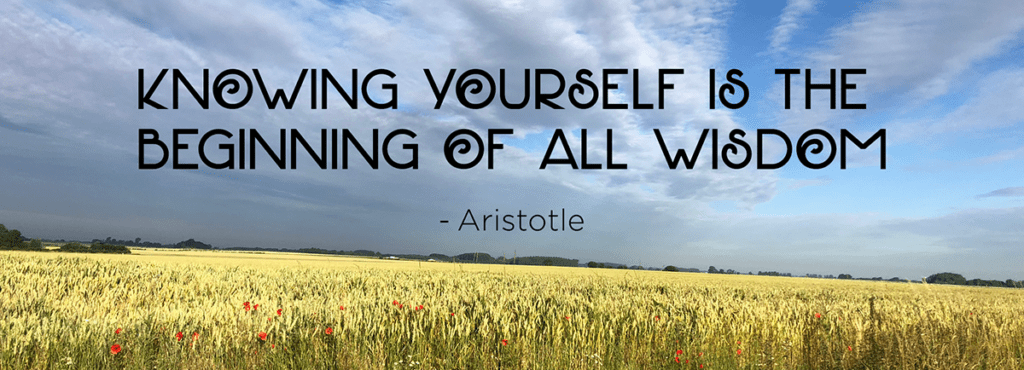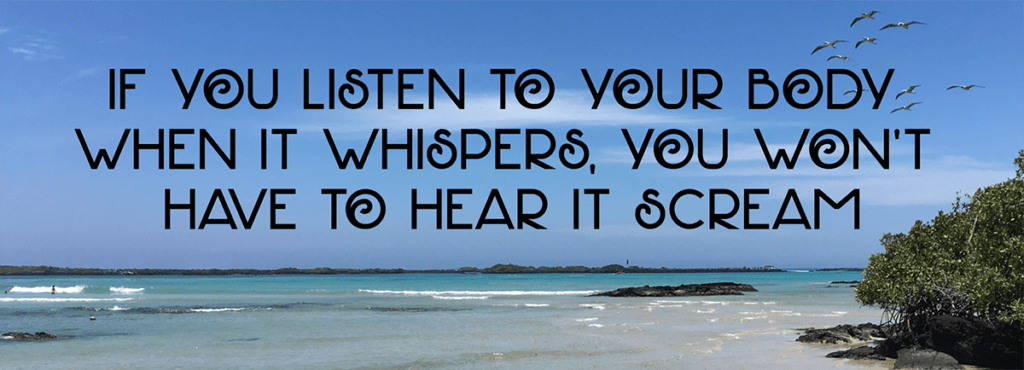By now a few of you know that I am a coach 
- Themselves: “If only I could have more will power and stopped eating all this junk food”, or “If I only learned to stop sweating the small stuff”, or “If only I could be less shy and have more self-confidence”.
- Others: “If only he could stop focusing so much on golf and focus a bit more on me”, or “She always criticizes me and is not interested at all in my perspective on things”.
- Circumstances: “I just need to get to the end of this big project. Then I’ll be able to take a break”, or “As soon as Covid will be over, we will be able to resume our normal life”.
In other words, we want things to be other than what they are. And I say “we” because I am not just talking about clients that I coach: I’m talking about pretty much every one of us! Coaching clients have just gotten to the point where they are done with the status quo and want something to change.
So many of us want ourselves to be different, or want others or circumstances around us to change. We don’t want to accept what is, as it is. The problem with that attitude is that there is no resting place in resisting what is. Also, there is no productive movement toward change in resistance. Paradoxically, the more we cling to wanting something other than what we are or already have, the more stuck we get in what is, and the less we start moving toward this better place of being or doing that we seek. It’s a little bit like being stuck in quicksand.
So, let’s go on a journey inward today, shall we?
HOW WELL DO YOU KNOW YOURSELF?
Understanding oneself is akin to fine-tuning an instrument. By delving into the depths of our being, we gain insights into our core, both our physical and mental/emotional selves.

1. OUR NATURE/TEMPERAMENT (MENTAL/EMOTIONAL SELF)

First, let’s look at temperament. Answer the following questions. As you do, see if you can answer them as you might have when you were still a small child, say before the age of six, because that is when you were still your most authentic self, not yet bent into other shapes by the parenting you experienced, the culture you grew up in, and your life circumstances.
- Activity Level: Are you a calm person, or more active? What’s your comfort ratio between inactivity and activity?
- Bio-Rhythmicity/Regularity: How physically regular are you? Do you always do things at the same time of day, or are you comfortably unpredictable in your bio-rhythms?
- Approach/Withdrawal: Do you easily and naturally go toward people, things, or new situations, or do you tend to recoil first and need time to warm up?
- Adaptability: Are you comfortable or rattled by transition and change?
- Sensory Threshold: What is your sensory threshold? In other words, how sensitive are you to outside stimuli?
- Mood: What is your baseline quality of mood? Are you more “glass half empty” or “glass half full”?
- Intensity of reactions: What is the intensity of your emotional reactions (whether positive or negative)? Do you have more of a low emotional affect, or more of an exuberant one?
- Distractibility: What’s your level of distractibility? Are you someone who easily stays focused, or do you easily get distracted?
- Persistence/Attention span: What is your level of persistence? Can you stay with a difficult task for a long time or do you give up easily?
These are the nine temperament traits uncovered by researchers Stella Chess from NYU and her husband Alexander Thomas in their New York longitudinal study from 1950 to 1968. The study concluded that our temperaments are determined before we are born, and it led to the “goodness of fit” theory which refers to the consonance between the child's individual temperament and the demands and expectations of the environment.
Note: there are no GOOD or BAD answers to the temperament questionnaire above. There is just what is. Who you are in your natural state. Problems only start occurring when we bend ourselves, or let ourselves be bent, out of our natural shape, by what Chess and Thomas called “the demands and expectations of the environment”. If you are fully conscious of your temperament, and you choose to honor it as much as acceptable in the limits of social life, you will not feel bent out of your natural temperament shape, and you will be more in harmony with yourself. Literally, you will feel more like yourself, thus be more relaxed and less stressed than if you are trying to be someone you are not.
Is this always possible? Of course not. We are social beings and live with others in society. If you score very high on the “intensity” scale, you might allow yourself to blow up and get out of control at anything that gets in your way, which is obviously unacceptable social behavior. So, what gives? It’s a matter of “fine-tuning” as we said above. It’s about knowing oneself, including what fits and doesn’t fit in certain circumstances, and adapting accordingly. Yet the message is to try to make life choices that allow us to be, most of the time, in our natural state. In other words, trying to choose people, places, professions – which are a good fit, so that we can be our best selves as much as possible. This matters, because “we DO well when we FEEL well.”
2. OUR PHYSICAL SELVES

Second, let’s dive into your physical body. (Does anyone remember the Magic School Bus’s trips inside the body?). How attuned are you to what is going on inside your physical envelope?
Imagine this day: you slept extremely poorly and wake up tired and grumpy but without really knowing why or even consciously acknowledging it. Your kids fight at breakfast and the bottle of milk ends up on the floor. You grind your teeth and try to stay calm but eventually you lose it and yell so that everyone finally gets out the door. Now you’re all late for school and work – the kids miss the school bus and you hit massive traffic jams on your way to the office. You arrive with a big headache and wish you could go home … But you have no choice – you must go in. Your day at work is intense: your clients are super displeased with the delayed delivery of their order and your boss is incredibly upset with you that you allowed this to happen. In the midst of this crazy day of meetings during which everyone seems to be yelling at you, your mother texts you to say that your dad fell down the stairs and was just taken to the hospital. You steel yourself until you can finally leave work (later than usual) to race to the hospital, where you console your mother as your dad is in surgery. Then you have to race home to relieve the babysitter (your spouse is away on a business trip). The kids have seamlessly continued the fight they started in the morning and nobody has started doing homework, let alone dinner. You finally blow up, scream at the children and send them to bed without a goodnight. You fall onto the couch and stare blankly into emptiness until you finally have recovered enough that you have the strength to drag you and your massive migraine to bed. You are not sure how you will be able to get out of bed in the morning.

What might have been different if you knew your body really well so that you could identify your known signs of stress as they were emerging? What if you had been more mindful and hadn’t just “made it through” your day, but had actively participated in shaping it instead, by being more self-aware?
As you were waking up, you would have taken a moment to take stock of your night. You might have realized that you had slept poorly, and given yourself an extra moment of nurturing self-care to make up for the bad night (with a nice hot shower, and a quiet moment alone with your favorite cup of tea and your morning meditation). As you walked into the kitchen where your kids are fighting, since you have just taken a moment to yourself, you are able to calm the argument between the kids and ask them for their support in cleaning up so that you can all get out of the house on time. No one is late for school/work. The traffic on your way to work gives you an opportunity to rest and gather yourself. You notice that the morning has made you a bit tense again – and you take a few deep breaths to try to relax yourself. You focus on the gorgeous flowering trees along the highway. You put on some music that brings you joy. You arrive at work and--despite the fact that the problems are all the same--because you walk in calm and collected, you are much better able to handle the various crises. As a result of your calm demeanor and ability to not take things personally, the problems get worked on creatively and solutions are found. When you receive your mother’s text about your dad’s accident, you are able to prioritize this emergency and negotiate with colleagues and your manager to leave early to tend to the situation. On your way home you realize that you have a migraine coming on from the stress of the day. You immediately take appropriate measures (sun glasses, migraine pills, closing windows and turning the radio off), so that when you walk in the door at home you know you have done what you could to contain the migraine. You tell everyone you need to go to bed. Could they please feed themselves and take care of the dog and come quietly say goodnight when they are ready?

Same day, same circumstances, different experience for you and others. By knowing yourself, paying attention to your experiences, and making the time to tend to your physical experience as it is unfolding, you keep adjusting and recalibrating in real time. This gives you the ability to act from a less reactive posture and handle each problem that presents itself in a more productive way. As a result, you are able to keep your stress levels down, nurture your well-being, and thus have overall better outcomes for this very difficult day. You also have less cumulative stress effect on your overall health as you are dealing with stress in real time. As Epictetus said: “It's not what happens to you, but how you react to it that matters.”

This deep knowledge of our mental, emotional and physical selves serves as the compass guiding us towards optimal functioning. As we become more attuned to ourselves, we can recalibrate our actions, thoughts, and emotions in alignment with our true essence and in service of both the needs of the situation and of the greater good.
3. OUR COHERENT/AUTHENTIC SELF

Now that we've laid the groundwork for self-understanding, let's explore how embracing our authentic selves enables us to contribute meaningfully to the world.
Positive Psychology teaches us about authentic strengths—the innate qualities and virtues that make us who we are. Positive psychology began as a new domain of psychology in 1998 when Martin Seligman chose it as the theme for his term as president of the American Psychological Association. Seligman proposes that a person can best promote their well-being by nurturing their character strengths: through his research, his team uncovered 24 universal character traits that we all possess in a certain and unique order of importance. By taking the VIA Strengths Survey assessment, you can find out in which order of priority the 24 strengths fall for you – and pay particular attention to your top five strengths, which constitute the bulk of your character strengths. Seligman posits that in order to live “authentically happy”, one must live according to one’s top five strengths. Conversely, when one does not honor their top five strengths in their life, one might not feel completely “right” or totally happy; which is because one is not authentically themselves. Sound familiar?
When we operate from a place of authenticity, leveraging our unique strengths, we enter a state of flow. In this state, time dissipates, and we are fully immersed in the task at hand, experiencing a profound sense of fulfillment. By embracing our authentic selves and operating from a place of alignment, we become conduits of positive change in the world. When we offer our gifts and talents authentically, we contribute to the collective tapestry of humanity, weaving threads of compassion, creativity, and joy.

Dear friends, remember that the journey of self-discovery is not a destination but a lifelong odyssey. As you embark on this quest, may you find solace in the depths of your being and courage in the uniqueness of your essence. Embrace yourself, honor your strengths, and let your light shine brightly, illuminating the path for others to follow.
With love and light,

DISCOVER YOUR AUTHENTIC SELF – SPECIAL OFFER!
Uncover your true potential with our exclusive offer! Take the VIA Character Strengths Survey and book a personalized debrief session with me for only $199!
Here's how it works:
- Book Your Debrief Session: Secure your spot at the special price.
- Take the Survey: Receive detailed instructions for the VIA Character Strengths Survey after booking.
- Personalized Debrief: Gain insights into your character strengths and how to leverage them for personal and professional growth.
Don't miss this opportunity to discover your authentic self. Book now and start your journey to self-discovery!
SUBSCRIBE TO THE CHALLENGE COACH NEWSLETTER
Are you ready to receive exclusive insights, tips, and strategies to help you overcome your challenges and achieve your goals? Then sign up for The Challenge Coach's Newsletter today!
As a subscriber, you'll get access to:
- Actionable tips and advice from The Challenge Coach
- Inspiring stories
- Discounts for coaching programs and products
... and much more!
Don't miss out on this incredible opportunity to stay connected with The Challenge Coach and take your personal growth to the next level. Sign up now and join our community of driven, determined, and empowered individuals.



 There is a good reason […]
There is a good reason […]

